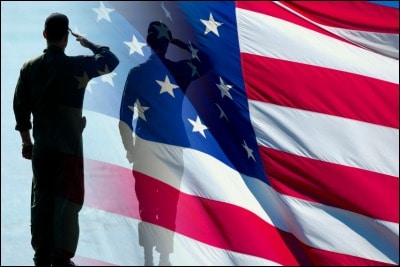 Signed into law by President Bush in 2003, the Servicemembers Civil Relief Act (SCRA) both replaced and expanded the similarly-focused Soldiers and Sailors Civil Relief Act (SSCRA), which was originally passed in 1918. The purpose of the SCRA is to allow servicemembers to “devote their entire energy to the defense needs of the Nation.” As such, the SCRA provides legal protections to active duty members of the United States military when they are involved in lawsuits that affect their rights. This applies to all types of litigation, including divorce and child custody lawsuits. If you are a member of the military on active duty, the SCRA can assist you greatly. However, if you are involved in litigation against an active duty member of the military, the SCRA can place many additional hurdles in your path. Here’s how:
Signed into law by President Bush in 2003, the Servicemembers Civil Relief Act (SCRA) both replaced and expanded the similarly-focused Soldiers and Sailors Civil Relief Act (SSCRA), which was originally passed in 1918. The purpose of the SCRA is to allow servicemembers to “devote their entire energy to the defense needs of the Nation.” As such, the SCRA provides legal protections to active duty members of the United States military when they are involved in lawsuits that affect their rights. This applies to all types of litigation, including divorce and child custody lawsuits. If you are a member of the military on active duty, the SCRA can assist you greatly. However, if you are involved in litigation against an active duty member of the military, the SCRA can place many additional hurdles in your path. Here’s how:
How the SCRA Can Help You: If you are an active duty member of the U.S. military and you become involved in litigation, the Servicemembers Civil Relief Act can provide for a temporary suspension of any proceedings that may adversely affect your civil rights. Significantly, the SCRA protects plaintiffs and defendants, not just defendants, in any court or administrative proceeding in the United States.
The exact rules under the SCRA depend upon whether the servicemember has made an appearance in court, and whether the servicemember has notice of the proceedings. If the servicemember has not made an appearance, it is the duty of the court to determine whether that party is in the military. If the servicemember is found to be an active duty member of the military, the court must grant a stay of proceedings for a minimum period of 90 days. If the servicemember has notice or has made an appearance, the court may upon its own motion stay the action for a period of not less than 90 days, and must issue such a stay upon an application by the servicemember which includes:
- A letter or other communication setting forth facts stating the manner in which current military duty requirements materially affect the servicemember’s ability to appear and stating a date when the servicemember will be available to appear, and
- A letter or other communication from the servicemember’s commanding officer stating that the servicemember’s current military duty prevents appearance and that military leave is not authorized for the servicemember at the time of the waiver.
How the SCRA Can Hurt You: If you are involved in litigation against an active duty member of the U.S. military, the case can be delayed or suspended due to the servicemember’s inability to litigate right away. This can be especially difficult for you if there are matters of child custody and support involved. Furthermore, the Servicemembers Civil Relief Act is a relatively young piece of legislation and does not address every single scenario that could arise and complicate the stay. For example, a servicemember’s bad faith does not prevent a stay if the requirements are otherwise met.
If you are involved in litigation with a servicemember, or if you are a servicemember involved in litigation affecting your rights, consult with an attorney experienced with the Servicemembers Civil Relief Act as early in the process as possible. The military divorce lawyers at Livesay & Myers, P.C. have extensive experience with the SCRA as it relates to divorce, custody, visitation and support cases in Northern Virginia. From our five convenient office locations, we represent clients across Northern Virginia. Contact us to schedule a consultation with one of our attorneys today.
